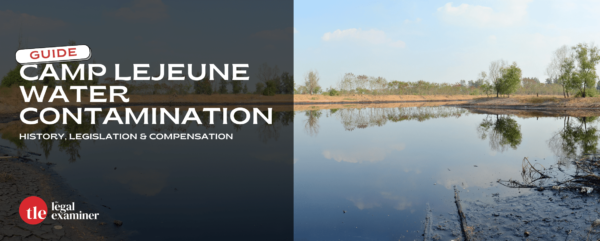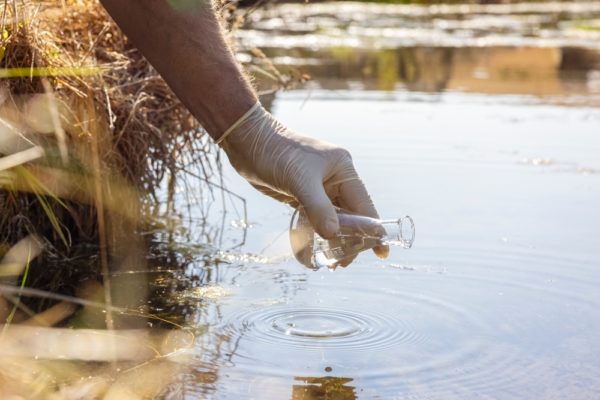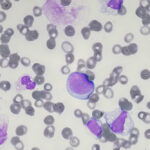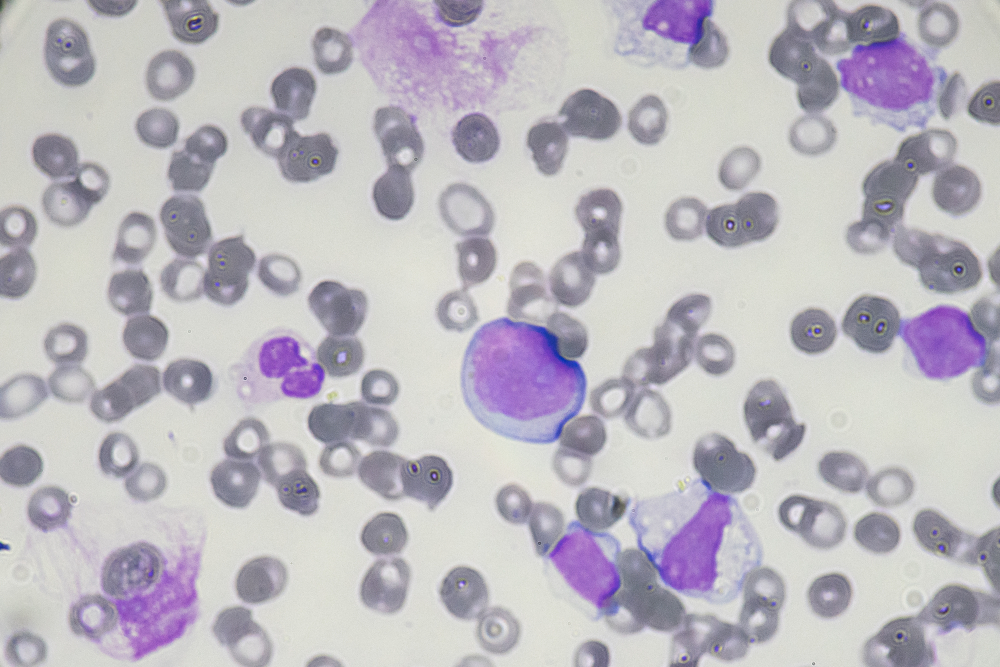Camp Lejeune Lawsuit Guide: Water Contamination, Illness & Compensation
About Camp Lejeune Lawsuits
- Many who lived and worked at Camp Lejeune in North Carolina have been diagnosed with serious illnesses caused by contaminated water at the base.
- The Camp Lejeune Justice Act allows veterans, their family members and civilians who lived and worked there from 1953 to 1987 for at least 30 days and have health conditions caused by water contamination to seek compensation for their injuries.
- To file a Camp Lejeune claim for injuries or wrongful death, you can start by contacting a Camp Lejeune lawyer who can assist in obtaining compensation for medical costs, pain and suffering, lost wages and more.
Camp Lejeune Lawsuits FAQs
Do I need to hire a Camp Lejeune lawyer?
You can file a Camp Lejeune claim on your own, but a lawyer can ensure the proper steps are taken, and the claim is filed correctly and on time. If necessary, a Camp Lejeune lawyer can file a lawsuit on your behalf.
How long do I have to file a Camp Lejeune claim?
The Camp Lejeune Justice Act allows a two-year window for water contamination victims to seek justice. You have until August 10, 2024, to file a claim. Victims and their families can file a Camp Lejeune lawsuit in North Carolina federal court if the claim has not been resolved after six months.
Who can file a claim for Camp Lejeune water contamination?
You can seek compensation if you lived or worked at Camp Lejeune or if your mother lived, worked, or was otherwise exposed to Camp Lejeune toxic water while pregnant with you from August 1, 1953, and December 31, 1987, for at least thirty days total.
What medical conditions qualify for a Camp Lejeune claim?
Multiple health issues are linked to Camp Lejeune water contamination, including bladder cancer, kidney cancer, liver cancer, leukemia, Parkinson’s disease, Non-Hodgkin’s lymphoma, multiple myeloma, aplastic anemia and other illnesses.
How long will a Camp Lejeune claim take to settle?
Camp Lejeune claims need to be submitted to the Department of the Navy Office of the Judge Advocate General (JAG) Tort Claims Unit Norfolk. A concrete deadline for resolving Camp Lejeune claims was not set, but if an administrative claim has not been resolved after six months, victims and their families are permitted to file a Camp Lejeune lawsuit.
Do you lose VA benefits if you file a Camp Lejeune lawsuit?
No. The Camp Lejeune Justice Act carves out an important exception and allows Camp Lejeune victims to file a lawsuit and receive VA benefits simultaneously.

Table of Contents
- 1 About Camp Lejeune Lawsuits
- 2 Camp Lejeune Lawsuits FAQs
- 3 Filing a Camp Lejeune Water Contamination Lawsuit
- 4 Camp Lejeune Disability Claims Errors
- 5 History of Water Contamination at Camp Lejeune
- 6 What Toxins Were Found in Camp Lejeune Water?
- 7 Impact of Water Contamination at Camp Lejeune
- 8 Camp Lejeune Water Contamination Legislation
Camp Lejeune is a U.S. Marine Corps Base established in 1952 in North Carolina. It’s home to active-duty military and their families, veterans, and civilian employees. Camp Lejeune is a community complete with everything anyone working, training, and living there could need, such as shopping centers, childcare, education services, restaurants, fitness centers, banks, and a library.
While Camp Lejeune is a state-of-the-art training center for U.S. Marines, in recent years, it’s become known as the center of one of the worst water contamination crises in the country. Between 1953 and 1987, Marines and their families at Camp Lejeune drank, bathed in, and cooked with severely contaminated water. The volatile organic compounds (VOCs) and other chemicals found in the Camp Lejeune water supply have led to serious chronic health conditions and taken the lives of children and adults. While the discovery of VOCs in the water at Camp Lejeune happened in the early 1980s, it was kept quiet for almost 20 years.
Now, people who developed certain cancers and other adverse health effects and the families of those who died from these diseases can file a Camp Lejeune lawsuit seeking compensation from a government that failed them for years. After some revisions and a stalemate in the Senate, the Honoring our Promise to Address Comprehensive Toxics (PACT) Act of 2022, which includes the Camp Lejeune Justice Act (CLJA), was finally approved on Tuesday, August 2, 2022. President Biden signed the PACT Act into law on Wednesday, August 10, 2022, allowing Camp Lejeune lawsuits to move forward.
The Camp Lejeune Justice Act allows military members, their family members and civilians who lived or worked at the Marine Corps base to file a Camp Lejeune lawsuit and hold the government accountable for the devastating health effects they’ve suffered. With around one million people exposed to contaminated water at Camp Lejeune, the enormity of this disaster will become much clearer in the coming year.
Filing a Camp Lejeune Water Contamination Lawsuit
Victims of water contamination at Camp Lejeune who are seeking damages for their health condition(s) are now able to file a Camp Lejeune lawsuit. Veterans, their families and civilians who lived or worked at Camp Lejeune from 1953 and 1987 for 30 or more days and have developed certain health conditions are now able to sue the government for financial compensation for lost wages, medical costs, and pain and suffering. Also, if a loved one died as a result of an illness linked to the toxins at Camp Lejeune, you could have a wrongful death case. It’s important to note there will be a two-year statute of limitations for claims of this kind.
Steps for Seeking Camp Lejeune Compensation
The first step in seeking compensation under the Camp Lejeune Justice Act (CLJA) for illnesses due to water contamination is to file a Camp Lejeune claim with the Office of the Judge Advocate General (JAG) of the Navy’s Tort Claims Unit (TCU). Individuals have two years to file a CLJA claim. If a claim is denied and a Camp Lejeune settlement is not reached, a civil lawsuit can then be filed in the U.S. District Court for the Eastern District of North Carolina.
The CLJA allows Camp Lejeune water contamination victims or their families to file a personal injury or wrongful death claim to recover compensation for pain and suffering, medical costs and lost wages. A personal injury claim is a bodily injury sustained by the claimant due to negligence. A wrongful death claim is where the claimant who suffered a personal injury has died. The estate of the claimant must bring the wrongful death claims.

A CLJA claim can be filed even if you received health care benefits for Camp Lejeune illnesses from the Department of Veterans Affairs (VA). Camp Lejeune claims are for compensation to cover items not covered by the VA. If you filed a past claim under the Federal Tort Claims Act for Camp Lejeune water contamination that was denied, you would need to file a new claim.
Filing a Camp Lejeune claim will not impact any benefits you are receiving from the VA. However, any damage awards for Camp Lejeune water contamination made to an individual, or legal representative of an individual, will be offset by the amount of any disability award, payment, or benefit provided to the individual, or legal representatives, such as Medicare, Medicaid, Social Security Disability Insurance programs, or VA Disability programs.
The Camp Lejeune legal process may get complicated. If you are unsure if you or a loved one would qualify for a Camp Lejeune lawsuit, consider contacting a Camp Lejeune lawyer knowledgeable in the new legislation so the proper legal steps are taken within the Camp Lejeune Justice Act’s two-year statute of limitations.
Before the passing of the CLJA, lawsuits seeking damages for water contamination at Camp Lejeune had to be filed within ten years due to North Carolina’s Statute of Repose. At one point, over 800 Camp Lejeune lawsuits were consolidated into multidistrict litigation (MDL), claiming that plaintiffs’ illnesses were caused by contaminated water on the base. The case made it to the Supreme Court, and the MDL was rejected due to the statute of repose. The CLJA makes it so the statute of repose doesn’t apply to Camp Lejeune claims, and the U.S. government may not assert any Camp Lejeune claim to immunity.
Justice and accountability are finally possible for the contaminated water disaster at Camp Lejeune. It’s past time veterans, civilian workers, and families who drank and bathed in toxic water are compensated, and justice is served.
Hiring a Camp Lejeune Lawyer
For those considering a Camp Lejeune water lawsuit, an administrative claims process through the Navy JAG office must happen first. Individuals with injuries from the toxic substances in the drinking water at the Camp Lejeune military base can go to the Navy JAG website to begin the CLJA claims process. However, you may want to consult with an attorney familiar with Camp Lejeune lawsuits before you start.
Camp Lejeune lawyers can make sure claims are correctly filed to receive proper compensation for Camp Lejeune injuries and within the two-year statute of limitations. If a CLJA claim is denied, a lawyer can also assist with the next step, which would be a Camp Lejeune lawsuit.
But how should Camp Lejeune victims find the right lawyer to help? Before hiring anyone, there are some steps you can take to find a Camp Lejeune lawyer who will do everything they can to make sure you receive the proper compensation for your injuries. Most personal injury attorneys offer free consultations, so you may want to interview multiple Camp Lejeune lawyers before making a final decision. You can find your pool of possible Camp Lejeune attorneys through family or friend recommendations or online reviews.
During a lawyer consultation, some items you will want to cover include legal fees, experience, and possible damage amounts. The law firm you hire shouldn’t charge any fees up front. Legal fees should be included in the contract or contingency fee agreement. A lawyer should only receive compensation if the lawyer has successfully settled your case. Contingency fees are standard in personal injury cases and are usually a percentage of the settlement amount or jury award.
The Camp Lejeune lawyers you are considering should have experience in personal injury and wrongful death cases involving toxic exposure or water contamination. These lawyers will know what evidence is needed, including medical records and expert witnesses, to support your claim. Water contamination and toxic exposure are complex legal topics, so it would be beneficial to hire a law firm that has had success with similar cases. Also, make sure the lawyer is able and willing to go to trial if necessary. If a Camp Lejeune settlement is not reached through the administrative claims process, it may be necessary to file a Camp Lejeune water lawsuit that could go to trial.
Most importantly, Camp Lejeune lawyers can help determine damage amounts for the injuries due to the toxic substances in the water at Camp Lejeune. The CLJA claim form will ask for a dollar amount for personal injury and wrongful death. An experienced attorney can determine how much compensation you should seek. The compensation should cover more than just medical coverage and disability benefits, but also for pain and suffering and lost wages due to injuries or wrongful death.
Camp Lejeune Disability Claims Errors
Before the Camp Lejeune Justice Act was passed, the only means for servicemembers to receive help for toxic water injuries was through disability benefits offered by the Department of Veterans Affairs (VA). However, a recent investigation by the VA Office of the Inspector General (OIG) discovered that workers inside the VA mishandled thousands of Camp Lejeune disability claims.
To qualify for Camp Lejeune VA disability benefits, victims must have worked or lived at Camp Lejeune for a minimum of 30 days between August 1, 1953, and December 31, 1987. They also had to have suffered from one of eight presumptive conditions or illnesses related to the Camp Lejeune water contamination. The conditions include adult leukemia, aplastic anemia and other myelodysplastic syndromes, bladder cancer, kidney cancer, liver cancer, multiple myeloma, non-Hodgkin’s lymphoma and Parkinson’s disease. Servicemembers and their family members could apply for benefits through the VA.
The investigation into Camp Lejeune disability claims discovered that staff denied about 71 percent of the claims filed and that errors were made on approximately 21,000 claims.
If your Camp Lejeune VA disability claim was wrongfully denied, or you are already receiving VA benefits for a Camp Lejeune illness, you may still be entitled to compensation under the CLJA. Consider consulting a Camp Lejeune water contamination lawyer to determine your best path forward to receiving compensation for your injuries. They can guide you through the CLJA claims process and make sure you get the help you deserve.
History of Water Contamination at Camp Lejeune
Unfortunately, the events prior to and following the discovery of VOCs and carcinogenic chemicals in the water at Camp Lejeune have shown serious failures by the government and certain authorities on the base.
In the 1970s, Camp Lejeune was ordered to properly dispose of solvents, but they didn’t, and it caused harmful chemicals to infiltrate the Camp Lejeune water supply. And in 1982, VOCs were found in the water supply for the first time, yet it wasn’t until 1985 that the most contaminated water wells were shut down.
The history of Camp Lejeune water contamination highlights failures to act and the government’s slow response to the discovered toxic substances. But it also reveals the efforts to keep the dangers quiet, ultimately putting more civilians, Marines and Naval personnel at risk.
Timeline of Camp Lejeune Water Crisis
Veterans, their loved ones, and civilians who spent time at the base in North Carolina have struggled for decades with severe medical conditions from toxic water. Illnesses range from Parkinson’s disease to kidney failure, several forms of cancer, miscarriages and birth defects.
The water contamination came from two of the base’s water treatment plants between 1953 and 1987. Toxic substances found in the Camp Lejeune water included volatile organic compounds (VOCs) like trichloroethylene (TCE), tetrachloroethylene (PCE), vinyl chloride and benzene. Learn more about when and where the Camp Lejeune water got contaminated with toxic substances through our comprehensive Camp Lejeune water contamination timeline.
1941: Construction of Camp Lejeune, named in honor of the 13th Commandant of the U.S. Marine Corps, John A. Lejeune, begins in Onslow County, North Carolina. It includes the early housing development, Hadnot Point, and the Hadnot Point water system. The Hadnot Point water system is the first of two water systems on the base recognized as causing the Camp Lejeune water contamination disaster.
1952: The housing development, Tarawa Terrace, begins operations, including its water treatment system, the second of the two systems that became contaminated.
1953: This is the year Hadnot Point’s drinking water system was affected by toxic chemicals. The contamination primarily resulted from leaking underground storage tanks as well as oil and other waste disposed of improperly, according to the Agency for Toxic Substances and Disease Registry (ATSDR).
1957: According to ATSDR, the Tarawa Terrace water treatment system is contaminated by toxins from the neighboring business ABC One-Hour Cleaners.
1972: Another water treatment system, the Holcomb Boulevard Water System, begins operations, and because Hadnot Point supplied Holcomb Boulevard intermittently, people in these areas may have suffered exposure to toxins in the Camp Lejeune water.
1979-1980: The Environmental Protection Agency (EPA) releases its standards for THMs, a by-product of drinking water disinfection, and also recommended drinking water levels for TCE, a solvent used in the dry cleaning industry.
1982-1984: The Navy begins an environmental cleanup program at Camp Lejeune, and as part of the effort, water wells near the known contaminated sites were tested.
1985-1987: The U.S. Marine Corps (USMC) moves forward with the time-consuming process of removing contaminated water wells from service. The process takes more than two years to complete (therefore Dec. 31, 1987, ends the eligibility period under the Camp Lejeune Justice Act for people to be eligible to file a lawsuit).
1989: The EPA names Camp Lejeune and ABC One-Hour Cleaners as Superfund Sites.
1991: The ATSDR begins a multi-year look at the risk to children whose mothers were exposed to contaminated water during pregnancy at Camp Lejeune.
1998 The ATSDR study on the health of children (children born between 1968-1985 whose mothers drank the contaminated water) is published with the overall consensus being more investigations into exposure are necessary.
1999-2002: ATSDR conducts a telephone survey designed to identify selected birth defects and childhood cancers in children affected by the Camp Lejeune water. Many of the respondents are learning for the first time that they could be a victim of Camp Lejeune water contamination.
2003: ATSDR completes its childhood cancer and birth defect survey of children who had been exposed to the contaminated water, finding 106 children had specific birth defects and cancers.
2004: The Commandant of the Marine Corps forms a panel to look into the handling and the decision-making concerning the toxic water at Camp Lejeune (The panel determined that “the Marine Corps acted responsibly.’’).
2007: The USMC launches a notification and registration campaign for former Camp Lejeune residents to sign up for more information about water contamination by telephone or internet.
2008: President George W. Bush signs the 2008 National Defense Authorization Act requiring the Department of the Navy to conduct a health survey of people exposed to contaminated water at Camp Lejeune.
2009: An Iowa woman becomes the first person to file a lawsuit against the United States government over Camp Lejeune’s water contamination. Laura Jones, a wife of a former marine, lived at Camp Lejeune from 1980 to 1983. Her lawsuit alleges the exposure to the toxins led her to be diagnosed with non-Hodgkin’s lymphoma.
2012: President Barack Obama signs the Honoring America’s Veterans and Caring for Camp Lejeune Families Act (Janey Ensminger Act), making it possible for military service members impacted by the water contamination to more easily receive health care through the U.S. Department of Veteran Affairs (VA). Any veteran who served on active duty at Camp Lejeune for at least 30 days between January 1, 1957, and December 31, 1987, and their family members, could receive medical services if they suffered from any of 15 listed cancers and other illnesses or conditions.
The illnesses were: esophageal cancer, breast cancer, kidney cancer, multiple myeloma, renal toxicity, female infertility, scleroderma, non-Hodgkin’s lymphoma, lung cancer, bladder cancer, leukemia, myelodysplastic syndromes, hepatic steatosis, miscarriage and neurobehavioral effects.
2017: An additional $2 billion is made available to veterans, reservists, and National Guard members who were impacted by the water contamination. To receive disability assistance, the individual must suffer from one of eight diseases, which include kidney cancer, liver cancer, non-Hodgkin’s lymphoma, adult leukemia, multiple myeloma, Parkinson’s disease, aplastic anemia and other myelodysplastic syndromes or bladder cancer.
2021: The Camp Lejeune Justice Act (CLJA) is introduced in the U.S. House of Representatives to allow certain individuals to sue and recover damages for harm from exposure to contaminated water at Camp Lejeune in North Carolina between August 1, 1953, and December 31, 1987.
2022: As part of the Honoring Our PACT Act 2022 (PACT Act), the CLJA was signed into law on Wednesday, August 10, 2022. With the passing of this legislation, veterans, their families and civilians who lived or worked at Camp Lejeune from 1953 and 1987 for 30 or more days and developed certain health conditions are now able to file a Camp Lejeune lawsuit for financial compensation for lost wages, medical costs, and pain and suffering. Those who had loved ones die as a result of an illness linked to the toxins in Camp Lejeune’s water may also be able to file a wrongful death lawsuit.

What Toxins Were Found in Camp Lejeune Water?
North Carolina military base Camp Lejeune has gained notoriety for an unprecedented water contamination disaster that took place from 1953 to 1987. During this time, two water treatment plants on the base became contaminated with volatile organic compounds or VOCs. These compounds are found in our homes and everyday consumer products, but long-term exposure can cause serious health problems. Because it took decades for the military to close the affected Camp Lejeune water treatment plants, service members, their families, and civilian workers were exposed to dangerous chemicals.
Manufacturing and production workers who interact with these compounds receive ample warning about the potential dangers of exposure. The men, women, and children who lived and worked at Camp Lejeune had no idea they were putting themselves in harm’s way anytime they poured a cup of water, took a shower, or did a load of laundry. The chemicals that sickened Camp Lejeune residents aren’t meant for human consumption.
The volatile organic compounds found in the water at Camp Lejeune included trichloroethylene, tetrachloroethylene, vinyl chloride, perchloroethylene, and others. The water systems contaminated with VOCs provided the majority of water supplied to housing at Camp Lejeune, endangering the lives of anyone living there between 1953 and 1987. Some experts have said the contamination levels at Camp Lejeune were the highest they’ve ever seen in the U.S.
It’s reported that the toxins entered the Camp Lejeune water supply through improper disposal of solvents by an off-base dry-cleaning company and leaky underground fuel storage tanks. Far too often, toxins are dumped close to water supplies and are quick to infiltrate water without anyone knowing; VOCs spread easily and are long-lasting.
Volatile organic compounds and other chemicals found on the Marine Corps Base are used in many ways and in several industries. They’re in household products, paints, gasoline, and industrial solvents. And some of the most dangerous VOCs found in the water at Camp Lejeune, trichloroethylene and tetrachloroethylene, are used to clean military machinery and weapons. Other toxins found in Camp Lejeune’s water include vinyl chloride and benzene. Vinyl chloride and benzene exposure are linked to many health issues, including various cancers.
Trichloroethylene (TCE)
Trichloroethylene, also known as TCE, is a colorless liquid chemical primarily used for industrial purposes. According to the EPA, it is most often used to clean metal parts. TCE is used as an extraction solvent for greases, oils, and waxes and in paint remover and cleaning products. Trichloroethylene is also an industrial dry cleaning solvent. The U.S. military used the chemical to degrease equipment and contaminated the soil and groundwater at Camp Lejeune.
TCE exposure can happen in several ways. Inhaling the chemical, absorbing it through the skin, and drinking it are all dangerous. One-time exposure can cause symptoms like headaches and dizziness. Frequent exposure in low doses, like at Camp Lejeune, can increase the risk of severe health conditions. TCE is classified as a known human carcinogen by the Department of Health and Human Services, and prolonged exposure increases the risk of kidney cancer. The danger is so clear that the EPA moved to ban TCE as a degreaser and dry cleaner in 2016. The agency eventually walked back the proposal.
The Hadnot Point water system, which served Camp Lejeune barracks, recreational areas, schools, and the hospital on base, had high levels of trichloroethylene (TCE) in the water supply.
Tetrachloroethylene (PCE)
Tetrachloroethylene is similar to trichloroethylene, and the chemicals are often used together. Other names for tetrachloroethylene include perchloroethylene, PCE, and PERC. PCE is most commonly applied as a dry cleaning chemical and was the primary contaminant at the Tarawa Terrace Treatment Plant. ABC One-Hour Cleaners, a dry cleaner near the Camp Lejeune military base, improperly disposed of the dry cleaning solvent, which led to PCE seeping into Camp Lejeune’s water supply. The septic tank system on the property also released the chemical into soil and groundwater, and PCE was also buried onsite.
The servicemembers and their families who lived at the Camp Lejeune barracks closest to the plant drank and bathed in the water poisoned by the dry cleaning solvent. PCE is a potential carcinogen, which means there’s evidence to show it might increase cancer risk. As a result, modern dry cleaning technology aims to reduce PCE exposure.
Vinyl Chloride
Vinyl chloride is another VOC that contaminated the water at Camp Lejeune. Vinyl chloride is used in industrial and military settings to make polyvinyl chloride (PVC) pipes, cable coatings, and upholstery. PVC is commonly used in both industrial and military projects. Over three decades, about one million people unknowingly ingested and inhaled water that contained too-high levels of vinyl chloride. Short-term exposure can cause headaches, dizziness, and fatigue. Long-term exposure is far more dangerous because vinyl chloride is a known carcinogen.
Vinyl chloride exposure increases the risk of hepatic angiosarcoma, a rare liver cancer with a poor long-term prognosis. It also elevates the risk of lymphoma, leukemia, and brain and lung cancers. Some studies have found an increased risk of miscarriage and birth defects for pregnant women exposed to high levels of the chemical, and it can also cause nerve damage and immune system changes.
Benzene
Benzene is nearly everywhere. It’s one of the most common chemicals in the U.S., and it’s used to produce everything from plastics to detergents to dyes. It is produced by natural and manufacturing processes. In the 1970s, it was frequently utilized as an industrial solvent, but that’s less common today. Most people are exposed to low levels of benzene in the air from gasoline fumes, after inhaling firsthand or secondhand tobacco smoke, and other sources. Benzene is found in crude oil and used as a fuel additive. Experts theorize that benzene made it into the Camp Lejeune water supply because underground storage tanks leaked up to a million gallons of fuel into soil and water.
Low-level benzene exposure might cause symptoms like drowsiness, irregular heartbeat, headaches, and confusion. Long-term benzene exposure affects the bone marrow and red blood cells. Benzene inhalation can lead to irregular menstrual cycles and a change in ovary size in women. It is a known carcinogen linked to acute myeloid leukemia and other blood cell cancers.
Camp Lejeune Water Contamination Clean Up
More than 30 years after the VOCs infiltrated Tarawa Terrace and Hadnot Point, Camp Lejeune was placed on the Environmental Protection Agency’s (EPA) Superfund program’s National Priorities List on October 4, 1989. This launched a joint effort between the EPA, the Navy, and the North Carolina Department of Environmental Quality (NCDEQ) to rid Camp Lejeune of the contaminated water. The Camp Lejeune contamination cleanup is a complex, multi-phase process divided into separate geographic areas. Workers are focusing on specific contaminants present in each area, and their work will continue far into the future.
The first phase of cleanup involved the disposal of the contaminated drums, storage tanks, batteries and hazardous liquids and as much removal of tainted soil as possible. Along with this, the work has also included the use of chemical oxidation (which destructs or takes apart the toxins in the water) as well as electrical resistance heating (which causes contaminants to evaporate once soil and groundwater are heated).
According to the EPA, more than 48,000 pounds of VOCs have been removed from the soils.
As an official Superfund site, the protocol at Camp Lejeune requires that every five years, the Navy, EPA and NCDEQ review how the cleanup actions are being conducted. According to the EPA website, the last review, performed in 2020, found that the entities are achieving their goals and will “…protect people and the environment over the long-term once complete.”
The next review will be completed in 2025.

Impact of Water Contamination at Camp Lejeune
The impact of the Camp Lejeune water contamination is extensive; those who died or developed illnesses were military members, family members, and workers of all ages. Many stillbirths occurred, and both children and adults developed cancers and other adverse health effects. In some cases, close to whole families died or became severely ill.
As little as 30 days on the base could have led to VOC exposure levels dangerous to the body. With around one million people who were exposed, the government is expected to face thousands of Camp Lejeune lawsuits. These claims will be driven by the lack of action and communication to those at risk following the discovery of contaminants and the improper disposal practices of dangerous chemicals. They may also claim the government should have known of the risks to the water supply.
It’s unknown at this time just how many Americans who lived or worked at the North Carolina Marine Corps Base have developed illnesses or died due to the Camp Lejeune water contamination, but it is estimated that 500,000 people may have experienced significant health effects. Toxins began infiltrating the drinking water in August 1953, but the government didn’t shut down the two contaminated water systems until 1987. And while many years have passed since the Camp Lejeune water contamination occurred, medical and financial support is still needed for veterans, family members and civilians who lived and worked there.
Many of those affected by the toxic water supply didn’t learn about the contamination until the late 1990s. At this time, the Agency for Toxic Substances and Disease Registry (ATSDR) began researching the long-term effects of the Camp Lejeune water contamination. As the agency reached out to former Camp Lejeune residents and workers, many inflicted with cancers and other illnesses began to realize they could be sick due to their time at the base.
With the approval of the PACT Act and Camp Lejeune Justice Act (CLJA), those affected by the water contamination can now sue the government by filing a Camp Lejeune lawsuit, and the depth of this tragedy will no doubt be further revealed.
Illnesses Associated with Camp Lejeune Lawsuits
Camp Lejeune water contamination caused serious illnesses and deaths. To many water contamination victims, the name Camp Lejeune brings an assortment of tragic scenes to mind. Some associate it with its “Baby Heaven,’’ a cemetery on site dedicated to more than 100 newborns who died at birth in the 1960s and 1970s. The deaths were due to mothers unaware of the contaminated water. They were poisoning themselves and their unborn babies by drinking, cleaning and bathing in the toxic water.
To others, the base represents a place that did not adequately protect young families. A 2003 federal study concluded that the rate of neural tube defects, such as spina bifida and anencephaly (a condition in which part of the brain or skull is missing), was 265 times higher in babies connected with Camp Lejeune than the national average.
Camp Lejeune is also associated with a large number of male breast cancer cases, considered rare for men to contract. According to the Washington Post, at least 73 men, most former marines, believe their bout with breast cancer comes from their time on the military base.
Here is a general list of illnesses and conditions associated with the Camp Lejeune water contamination by the Agency for Toxic Substances and Disease Registry (with definitions for the lesser-recognized illnesses). Victims of the toxic water are suffering from or died due to these several types of cancers and other health conditions.
- Aplastic anemia
- Birth defects
- Bladder cancer
- Breast cancer
- Cardiac defects
- End-stage renal disease
- Esophageal cancer
- Hepatic steatosis (also known as fatty liver disease)
- Infertility
- Kidney cancer
- Leukemia
- Liver cancer
- Lung cancer
- Multiple myeloma (a cancer of plasma cells)
- Myelodysplastic syndromes
- Non-Hodgkin’s lymphoma
- Parkinson disease
- Renal disease
- Scleroderma (an autoimmune connective tissue and rheumatic disease that causes inflammation in the skin and other areas of the body.)
In addition to these serious conditions, the contaminated drinking water also caused adverse birth outcomes like miscarriages, stillbirths and neurobehavioral effects. In fact, hundreds of babies whose mothers were exposed to contaminated water died in utero or at birth.
Some health conditions developed while victims lived at the base, while many others took years. Since warning signs of toxic water are fairly rare, connecting a chronic illness to VOC exposure years or decades later isn’t always quick or apparent.
There are many factors that affect the health effects of VOCs on the human body: the level of contaminants, how someone is exposed (ingested, inhaled, or contact with the skin), and the length of time and frequency of exposure. Sadly, even low concentrations of toxins found in the water can cause chronic health conditions, and in most cases, there aren’t any early symptoms or warning signs.
While the U.S. Environmental Protection Agency (EPA) placed Camp Lejeune on the Superfund program’s National Priorities List (NPL) in 1989, it took years before many former residents learned they were at risk for debilitating illnesses from Camp Lejeune water contamination. It took even longer before the federal government implemented programs advocating for Camp Lejeune victims.

Camp Lejeune Water Contamination Legislation
President Obama signed the “Honoring America’s Veterans and Caring for Camp Lejeune Families Act of 2012,” also known as the Janey Ensminger Act, into law. This law allowed military service members impacted by the Camp Lejeune water contamination to more easily receive health care through the U.S. Department of Veteran Affairs (VA). It was named after a nine-year-old girl who lived at Camp Lejeune and tragically died from leukemia. The Janey Ensminger Act provided healthcare through the VA to the military and their families residing on the base. However, the legislation didn’t offer a legal avenue to file a Camp Lejeune lawsuit for damages related to health problems and illnesses caused by water contamination.
In 2017, veterans stationed at Camp Lejeune for at least 30 days between August 1953 and December 1987 began receiving disability benefits from Veterans Affairs (VA). They had to have at least one of eight specific health conditions that the Department of Veterans Affairs deemed to be related to exposure to the types of toxins discovered in the contaminated water on the base. Veterans must provide evidence of their illness to receive disability benefits, healthcare, and payments. Families can also receive healthcare if they have any of the 15 conditions identified by the VA, such as female infertility, breast cancer, and scleroderma.
Fast forward to 2022: The Camp Lejeune Justice Act (CLJA) combined with the Honoring Our PACT Act (PACT Act) passes. The PACT Act provides veterans exposed to toxins in the line of duty the healthcare and benefits needed when it causes injuries and health conditions.
Camp Lejeune Justice Act Passes
On August 2, 2022, the U.S. Senate passed the Sergeant First Class Heath Robinson Honoring our Promise to Address Comprehensive Toxics (PACT) Act, a bill designed to help veterans injured by toxic exposure. President Joe Biden signed the PACT Act into law on August 10, 2022. The PACT Act also includes the Camp Lejeune Justice Act (CLJA). The PACT Act will enhance health care and disability benefits for veterans exposed to toxic burn pits. The CLJA gives victims of toxic substances in the water at Camp Lejeune an important legal option. It is designed to give victims a two-year window to file a Camp Lejeune claim against the federal government for their illnesses due to Camp Lejeune water contamination.
The passing of this bill was welcomed news for veterans and their families because many were worried that a political stalemate would hold up the passing of the PACT Act and CLJA. The PACT Act was approved by the House of Representatives in July 2022, and the Senate passed a revised version by an 84-14 vote on June 16, 2022. But a technical error required another vote by the Senate. It was a shock to supporters of the bill, which had overwhelming bi-partisan support, when two dozen Republicans switched sides in the re-vote. The PACT Act vote on July 28, 2022, was 55-42 (with three senators abstaining), falling short of the 60 votes needed to overcome a filibuster. Several senators voted no on its passage, citing concerns about the legislation’s financial implications.
Another Senate vote took place on August 2, 2022, before the congressional recess, and this time the PACT Act was approved with a 86-11 vote, and President Biden signed it into law on August 10, 2022. With the passing of the Camp Lejeune Justice Act, veterans, their family members and civilians who worked and lived at Camp Lejeune can now file Camp Lejeune lawsuits.
This was a huge step towards justice for Camp Lejeune victims since no other legislation allows victims to file lawsuits against the government for water contamination on a military base. Until now, it has been challenging to do this because of an obscure North Carolina law calling for a ten-year statute of repose for claimants to file lawsuits (North Carolina is the only state to have such a law).



















